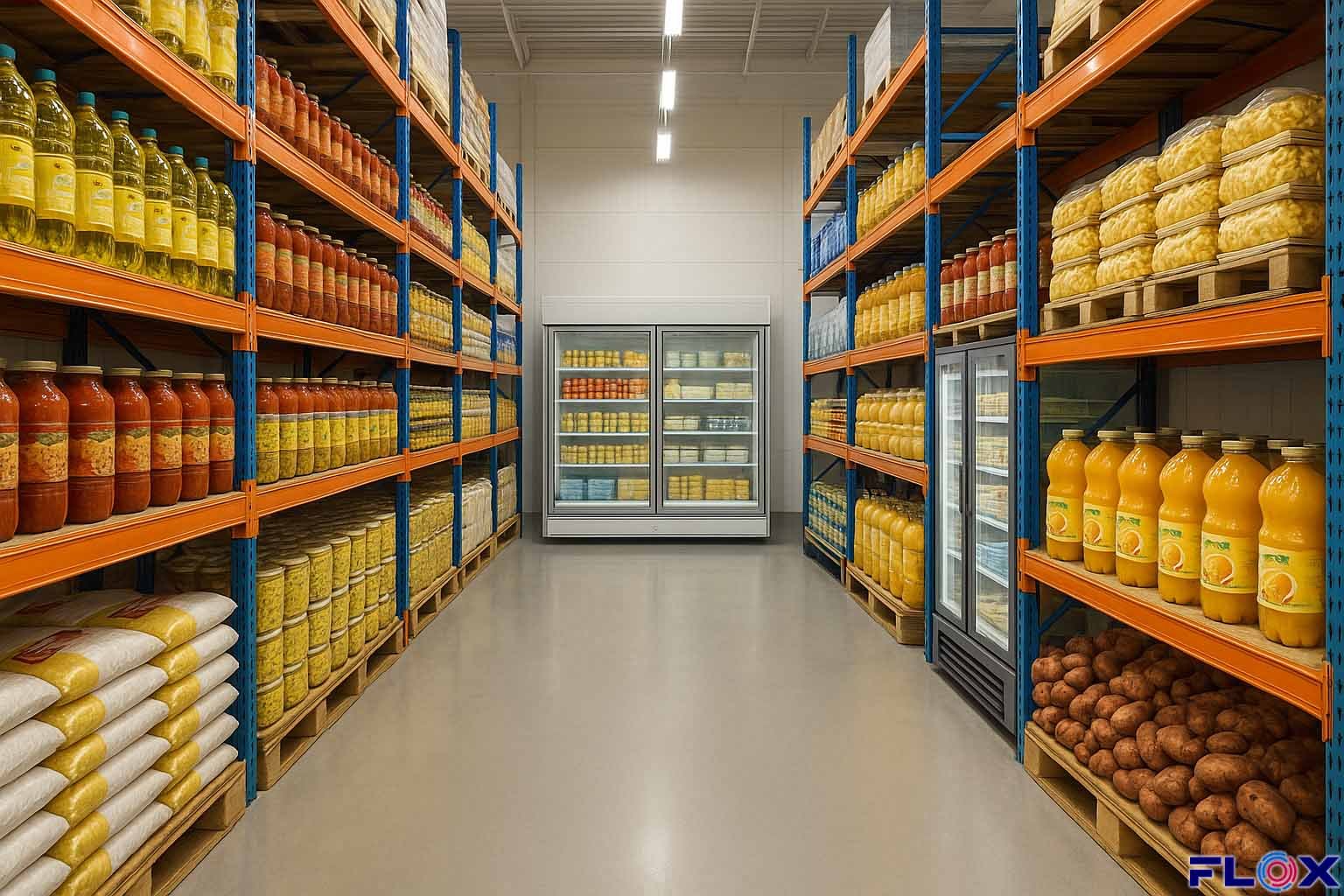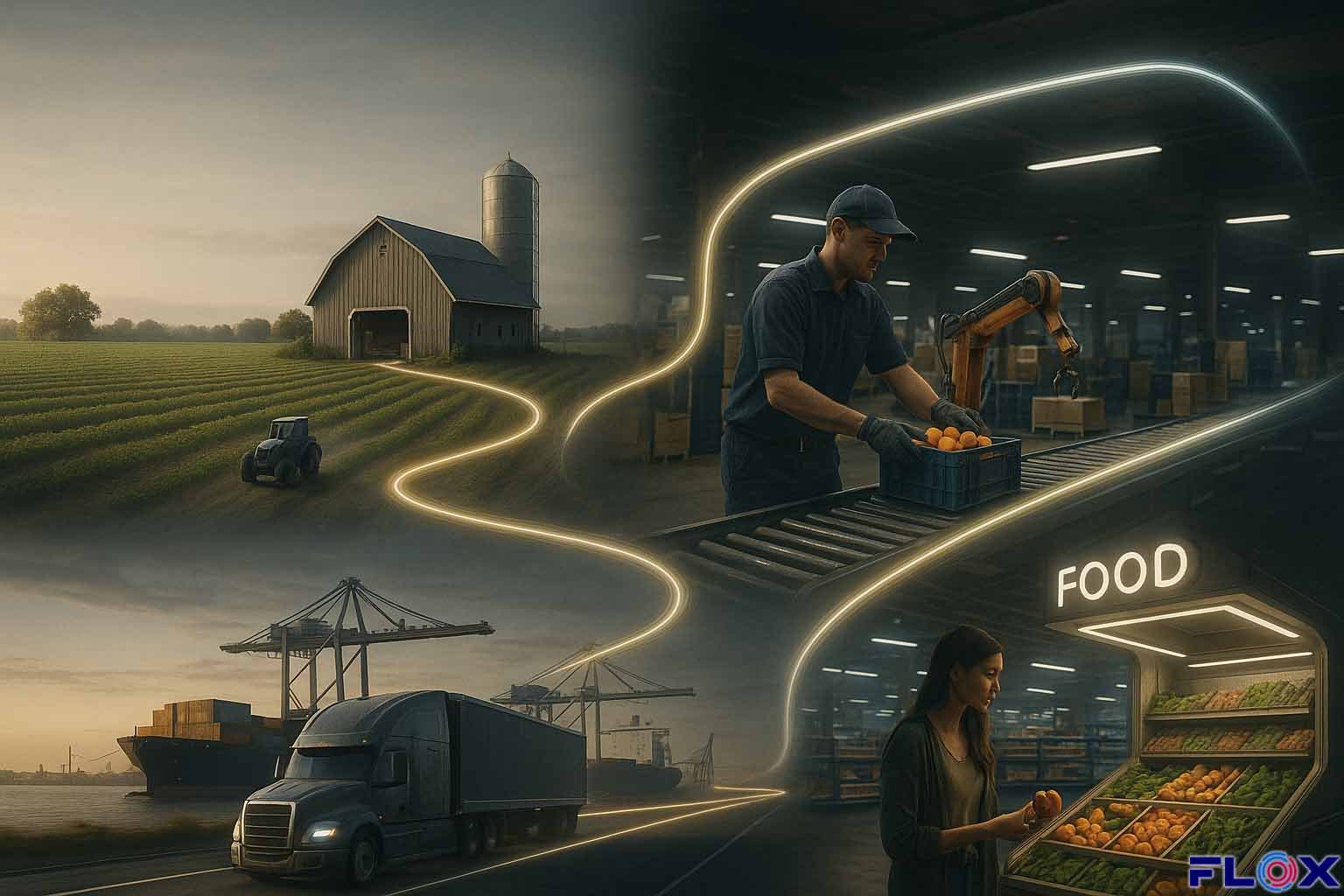When we think about food, our minds often go to the farmer or the retailer, but the invisible network of logistics is what truly keeps our food supply moving. It's not just about moving boxes; it's about preserving quality, managing costs, and ensuring food gets to consumers safely and on time.
Warehousing and Transport
The Role of Warehouses
Warehouses are crucial control towers that balance supply and demand. Their location is key to efficiency. For instance, a warehouse near farming regions allows for the quick collection and chilling of produce, while one near a port can handle imported goods like bananas and grains.
In the UK, many operators strategically place warehouses near major motorway networks in the Midlands for rapid nationwide distribution or closer to cities like London to shorten the final delivery leg. The decision of where to locate a warehouse is a delicate balance between proximity to production and consumption and is directly linked to the shelf life of the food.
The Importance of Transport
Transport in the food supply chain must be fast, flexible, and reliable. Temperature-controlled vehicles, such as refrigerated lorries and deep-freeze units, are essential. Multi-compartment trailers are also used to transport different products at varying temperatures simultaneously.
While road transport is dominant, rail freight is gaining renewed interest for long-distance journeys due to its ability to bypass road congestion and reduce carbon emissions. Air freight is reserved for high-value, time-sensitive perishables like fresh flowers or seafood, which need to be delivered within hours. The key is to integrate these different modes of transport into a seamless chain.

Climate Change and Regulations
Addressing Climate Change
Extreme weather events due to climate change, like heatwaves and cold snaps, pose significant risks to food logistics. They can strain refrigeration systems and lead to road closures and delays. This requires logistics providers to invest in robust monitoring, back-up power supplies, and smarter planning systems.
Food safety is particularly vulnerable to temperature swings, as chilled goods can quickly spoil. Furthermore, climate change threatens infrastructure, making transport planning flexibility essential.
The Role of Regulations
Regulations, often seen as "red tape," are vital for building consumer trust and ensuring food safety and quality. Certification schemes like BRC (British Retail Consortium) set strict requirements for storage and transport, covering everything from warehouse hygiene to vehicle temperature checks.
For logistics operators, compliance means investing in staff training and technology to track every movement. Those who fail to comply risk heavy fines and loss of business.

Resilience and Time Sensitivity
Few sectors are as time-sensitive as food. A delay of just a few hours can result in empty shelves or spoiled products. Logistics providers must plan with precision, accounting for traffic, weather, and customs. Technology, such as real-time tracking and route optimisation software, is now playing a crucial role in preventing delays.
However, the human element remains vital, with skilled drivers, warehouse teams, and planners being the "unsung heroes" who make smart decisions under pressure.
Food businesses face the challenge of balancing cost with resilience. While cheap solutions may save money in the short term, they leave the supply chain vulnerable to disruption. The most effective operators adopt a strategic view, investing in flexibility and contingency to ensure they can weather unexpected events and meet customer expectations for both availability and sustainability.
Ultimately, logistics is the invisible ingredient that makes the food supply chain work. It's the unseen network of warehouses, vehicles, and people that ensures a perfectly ripe avocado or a fresh pint of milk gets from farm to table.
Need to help with your food logistics? Visit FLOX to see how we can improve your supply chain operations and ensure your products reach customers efficiently.

